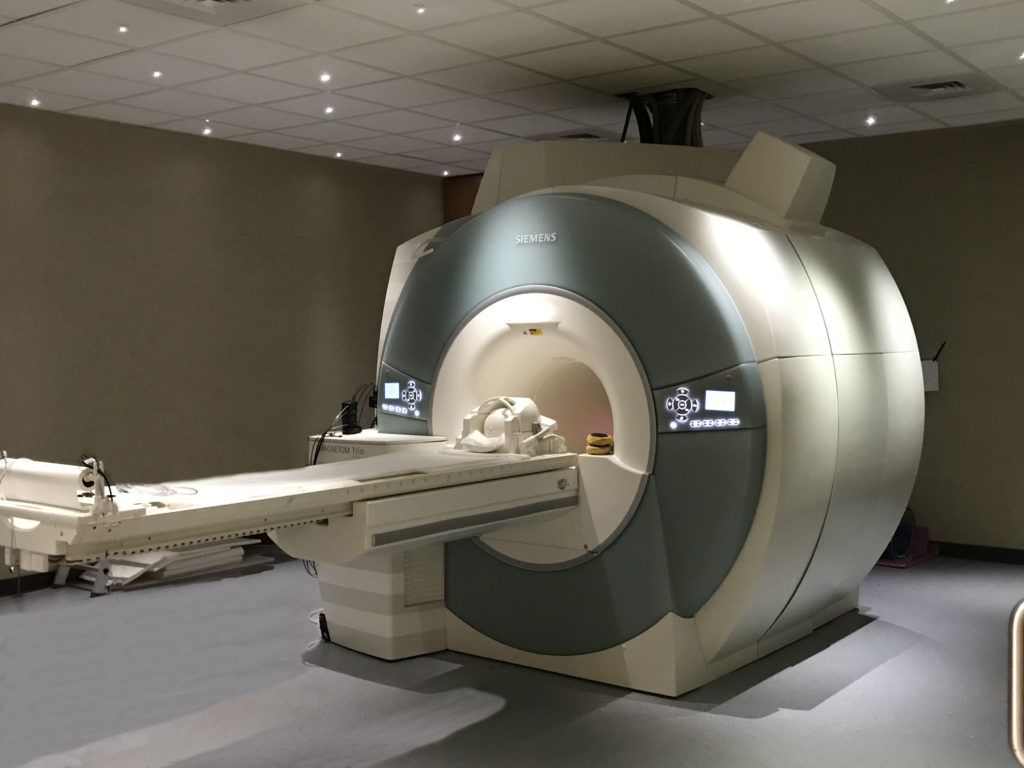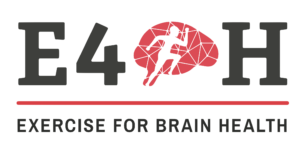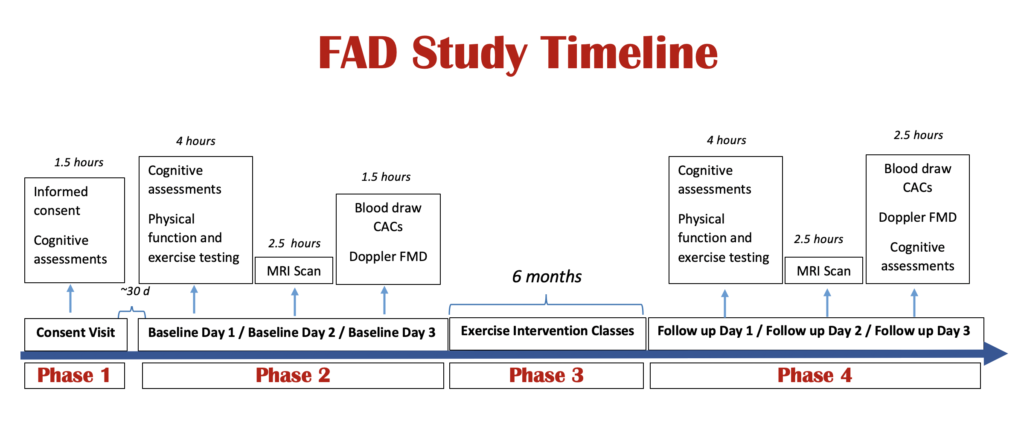Ingleside at King Farm, what can we do to preserve our memory?
Study Enrollment is NOW CLOSED
(We are no longer accepting applications)
Watch our video to learn more about the study.
Researchers at the University of Maryland are conducting a study to learn more about the effects of exercise as a possible treatment to delay or prevent the onset of cognitive impairment, including Alzheimer’s disease.

Are you interested in participating in the Fight Against Alzheimer’s Disease (FAD)?

Study Procedures:
- Baseline testing (4 visits to UMD Campus)
- 6 months of supervised exercise classes
- 4 days per week
- Classes via Zoom in your own home
- Follow up testing (3 visits to UMD Campus)
- Our research project and safety plan to resume in person research has been approved by the UMD IRB.
- All participants and researchers report symptoms, and wash hands and have temperature checked on arrival.
- All participants and research staff wear masks and other PPE, and maintain social distancing.
- All equipment is disinfected before and after use according to CDC approved guidelines.
- Testing is conducted in large open rooms with HEPA 13 air filtration systems.
Who is eligible to participate?
- Must be 60 – 89 years old
- Can walk unassisted at least 30 feet
- Not claustrophobic
- No previous brain surgery, heart attack, or stroke
- Over the past 6 months, you exercise no more than 2 days per week
- Other conditions not specified above may result in exclusion from the study
Our study involves:
- Six Months of Supervised exercise, 4 days per week, 1 hour per session, classes via Zoom in your own home
- A saliva sample and blood draw at your first visit and final visit
- Cognitive tests, physical tests, exercise stress test, and an MRI at baseline and after 6 months of exercis

Open enrollment and can begin at any time
There is no cost to participate and participants who qualify are compensated for their time. Transportation to the campus can be provided if necessary.
Frequently Asked Questions

You may not have any direct clinical benefit from participating in this study. The scans used for the research study are not the same as those used for making a clinical diagnosis. You will receive a small financial stipend in appreciation for your time volunteering for this research project, and we will pay for your parking costs.
Your decision to participate or not to participate will not in any way alter your clinical care.
MRI is a diagnostic tool that uses strong magnetic and radiofrequency waves to produce pictures or “images” of your internal organs without exposing you to radiation. In this study, the images are taken of your brain.
Functional MRI is an experimental procedure that is similar to MRI except that the brain images are collected while you perform a mental (cognitive) task in the scanner. For example, a mental task might involve remembering words. The images collected allow researchers to see the areas of your brain that become active while you perform the task.
You may not qualify if MRI would be unsafe for you, if you have an implanted pacemaker or other magnetic implants, or if you are prone to experiencing claustrophobia. Most joint replacements are safe for MRI.
Think you would like to participate?
Alzheimer’s Disease
Alzheimer’s Disease (AD) affects approximately 4 million people in the United States, and this total is expected to rise. Alzheimer’s Disease involves progressive degenerative changes in the brain that lead to alteration in personality as well as in memory, language, and visual-spatial processing.
Research has identified several risk factors for the development of Alzheimer’s Disease. These risk factors include old age, a family history of Alzheimer’s Disease, a diagnosis of Mild Cognitive Impairment, and a potential genetic marker (the e4 allele of the apolipoprotien (APOE) gene). However, getting old, or having a family history of Alzheimer’s Disease, or being diagnosed with Mild Cognitive Impairment, or having the APOE e4 allele does not mean a person will develop Alzheimer’s Disease. There are various pharmacological (drug) treatments being offered for Alzheimer’s Disease, but there is currently no cure.
Physical activity is a promising therapeutic intervention for Alzheimer’s Disease. Regular physical activity has been shown to reduce the risk for cognitive decline with age, and may help to maintain cognitive function and memory ability.
HOW CAN I SUPPORT THIS RESEARCH?

Phone: 301-405-0578
